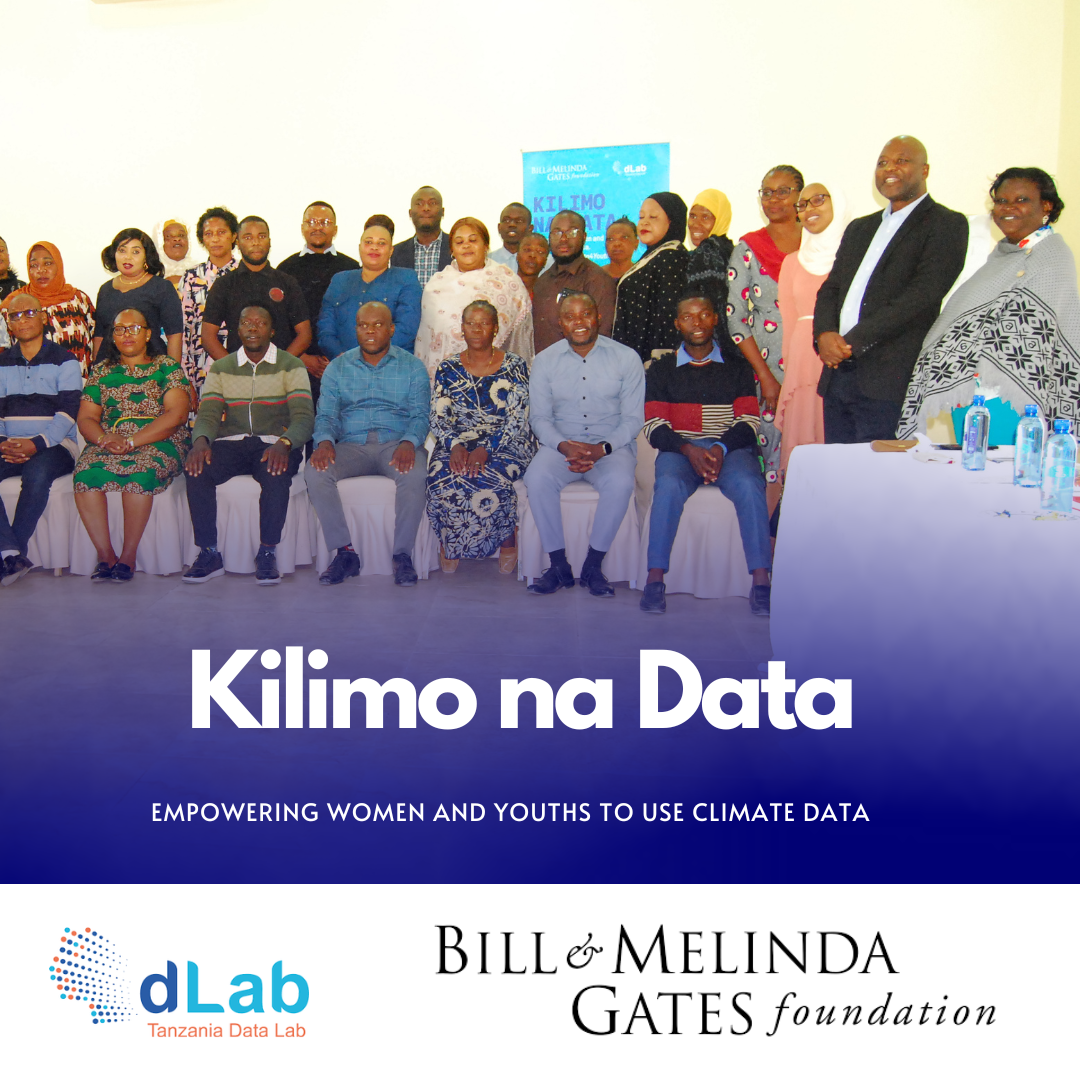
Building Climate Resilience Through Knowledge: Highlights from the Dodoma Capacity Building Program
The Kilimo na Data project officially launched its Capacity Building Program in Dodoma on July 29, 2025, bringing together a diverse group of 32 participants—farmers, MSMEs, agricultural officers, local government representatives, and weather experts from the Tanzania Meteorological Authority (TMA). The training aimed to strengthen the capacity of stakeholders in climate information services and agriculture-based decision-making.
Day 1: Understanding Weather Forecasts and Communication Channels
The program began with a powerful session on interpreting weather forecasts, led by experts from TMA. Many participants admitted that before the session, they had limited understanding of how to read and apply weather information. By the end of the day, however, they felt confident in understanding key forecast terminologies and making informed agricultural decisions.
A recurring challenge raised by extension officers was the regional nature of weather forecasts—which often do not reflect local microclimates. For example, weather conditions in Dodoma Urban differ greatly from those in Kondoa District. Participants suggested the need for localized and continuous weather updates throughout the growing season to guide decision-making from planting to harvest.
Farmers also highlighted gaps in data access and communication channels. Many were unsure where to obtain localized weather data or how to interpret it. Others expressed that while they are willing to pay for reliable information, they lack structured access channels or known extension officers for guidance.
One proposed solution was to empower agri-MSMEs to act as intermediaries between TMA and farmers. By serving as trusted local partners, MSMEs could disseminate weather information in an accessible and timely manner—while also using it to monitor productivity and strengthen their business models.
Additionally, participants discussed the need for a business model that enables an independent entity to source, interpret, and distribute localized weather information to farmers and MSMEs in simplified formats.
Preferred Communication Channels
Through a case study exercise, participants identified the most effective ways to share weather information. The majority favored village meetings, which remain highly effective for communities with limited literacy. Group-based models such as VICOBA were also suggested, allowing literate members to interpret and share weather updates within their groups.
Interestingly, SMS communication was viewed as less reliable, mainly due to scam message fatigue and poor engagement. Combining village meetings with targeted SMS alerts, however, was seen as a promising hybrid approach.
Day 2: Exploring Climate Change Impacts and Gender Dimensions
The second day delved deeper into climate change and its impacts across Tanzania. Using local case studies—from shifting seasons in Arusha to droughts in Dodoma—participants engaged in lively discussions on how climate change affects farming, fishing, and livestock sectors differently across regions.
A standout reflection came from one participant who noted,
“Most training we’ve attended use examples from abroad, but this one used Tanzanian realities—it hit home.”
Participant
When the discussion narrowed to Dodoma’s drought experience, participants highlighted gendered impacts of climate change:
- Women bear a heavier burden, walking long distances for water, facing risks of violence, and struggling to provide for their families when men migrate in search of pastures.
- Men, on the other hand, face psychological pressure as income falls and societal expectations remain high. Some migrate for livestock, unintentionally leaving women and children more vulnerable.
Participants emphasized the need for targeted support systems—including awareness campaigns, gender-responsive adaptation strategies, and stronger local government interventions.
Coping Strategies and Recommendations
Communities in Dodoma employ traditional methods like digging family wells and modern ones such as using weather-based seed advice from TMA. Participants recommended additional government and NGO actions, including:
- Expanding climate education and technical training for farmers.
- Providing subsidies for cooking gas to reduce deforestation.
- Supporting rainwater harvesting infrastructure in semi-arid regions
Why Climate Awareness Matters for MSMEs
Participants identified ten reasons why MSMEs must integrate climate awareness into their business models—from improved resource management and innovation to access to climate finance and market competitiveness.
The discussion on market access challenges revealed how poor weather alignment often leads to market gluts, such as oversupply of tomatoes or watermelons. Farmers were encouraged to link weather and market data for better timing and smarter production decisions.
Day 3: Risk Assessment, Climate Information, and Agribusiness Planning
The final day focused on risk management and the practical use of climate information. Using 30 years of Dodoma rainfall data, extension officers introduced water harvesting techniques suitable for arid conditions, including:
- “Mbegu 9” Method – Planting nine seeds in a 60 cm pit to retain moisture.
- Zambian Hoe Technique – Small pits to collect water near root zones.
- Contour Box Ridges – Trapping rainwater to reduce runoff.
- Micro-catchment Management – Aligning planting with slope contours.
Many participants, especially farmers, were learning these methods for the first time and expressed enthusiasm to apply them on their farms.
A hands-on group activity followed, simulating a seasonal business plan using a mock weather forecast predicting late rains. Participants developed innovative agribusiness ideas, such as:
- Investing in irrigation systems to counter dry spells.
- Storing and processing maize or other produce for sale during price peaks.
- Developing partnerships with women and youth farmers to scale impact.
One group projected profits of up to TZS 50 million through value addition and strategic storage—demonstrating how informed planning can turn climate challenges into business opportunities.
Conclusion: From Knowledge to Resilience
The Dodoma Capacity Building Program successfully deepened participants’ understanding of weather, climate change, and agribusiness risk management. Beyond learning, participants built practical skills to interpret data, plan production cycles, and align business models with changing weather patterns.
As one key takeaway, weather and climate information is no longer optional—it is essential for MSMEs and farmers navigating the realities of climate change. By integrating climate science, local knowledge, and market intelligence, Tanzania’s agri-MSMEs can transform vulnerability into resilience.
Through continued collaboration among farmers, extension officers, MSMEs, and institutions like TMA, the future of Tanzanian agribusiness can be climate-smart, data-driven, and sustainable—securing livelihoods while promoting food security for all.